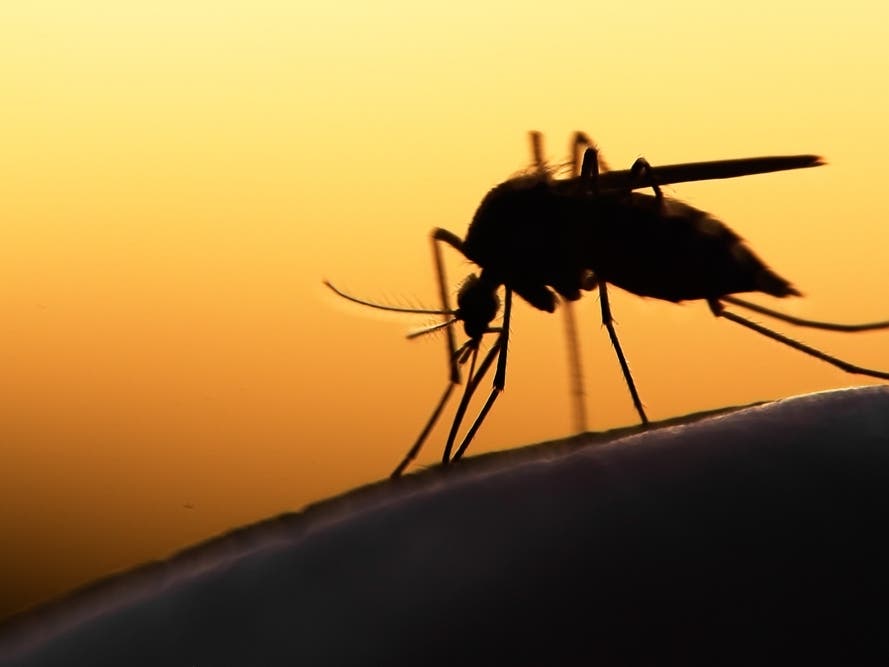Health & Fitness
39 Cases Of West Nile Virus Confirmed In Suffolk County: Health Dept.
39 more cases of West Nile Virus have been confirmed on Long Island, officials say. Get the details here.

SUFFOLK COUNTY, NY — Thirty-nine mosquito samples have tested positive for West Nile virus after 20—and the first human case—were reported last week, Suffolk County Health Commissioner Dr. Gregson Pigott announced Monday.
Thirty-four positive samples of Culex pipiens-restuans were collected on July 30 and August 1from Northport (4), Melville (1), Greenlawn (1), Dix Hills (1), Lindenhurst (3), Smithtown (1), Nesconset (1), Brentwood (1), Bay Shore (1), Sayville (2), Setauket (10), Port Jefferson Station (1), Holtsville (4), Rocky Point (1) and Bridgehampton (2).
In addition, two Culiseta melanura samples were collected on August 1 in Bohemia and on August 2 in Manorville, two Culex Salinarius samples were collected on July 30 in Nesconset and one Coquillettidia perturbans was collected on July 30 in Nesconset.
Find out what's happening in Bay Shorewith free, real-time updates from Patch.
To date this season, Suffolk County has reported 131 mosquito samples and three birds have tested positive for West Nile virus.
West Nile virus, first detected in birds and mosquito samples in Suffolk County in 1999 and again each year thereafter, is transmitted to humans by the bite of an infected mosquito.
Find out what's happening in Bay Shorewith free, real-time updates from Patch.
According to the Department of Health, the number of mosquito samples testing positive for West Nile virus in Suffolk County varies each year, ranging from 8 positive mosquito samples in 2004 with no reported human cases of West Nile virus to 295 positive mosquito samples in 2010 with 25 human cases reported.
In 2023, Suffolk County reported 99 positive mosquito samples and 5 human cases; in 2022, 96 positive mosquito samples and 11 human cases, and in 2021, 111 positive mosquito samples and 8 human cases.
Most people infected with West Nile virus will experience mild or no symptoms, but some can develop severe symptoms including high fever, headache, neck stiffness, stupor, disorientation, coma, tremors, convulsions, muscle weakness, vision loss, numbness, and paralysis. The symptoms may last several weeks, and neurological effects may be permanent. Individuals, especially those 50 years or older or those with compromised immune systems, are urged to take precautions to avoid being bitten by mosquitoes.
“The confirmation of West Nile virus in mosquito samples indicates the presence of West Nile virus in the area,” said Pigott. “While there is no cause for alarm, we advise residents to cooperate with us in our efforts to reduce exposure to West Nile virus and other mosquito-borne diseases.”Dr. Pigott offered the following tips to avoid mosquito bites:
- Minimize outdoor activities between dusk and dawn.
- Wear shoes and socks, long pants and long-sleeved shirts when mosquitoes are active.
- Use mosquito repellent, following label directions carefully.
- Make sure all windows and doors have screens, and that all screens are in good repair.
- Keep mosquitoes from laying eggs inside and outside of your home.
- Once a week, empty and scrub, turn over, cover, or throw out containers that hold water, such as vases, pet water bowls, flowerpot saucers, discarded tires, buckets, pool covers, birdbaths, trash cans and rain barrels.
Dead birds may indicate the presence of West Nile virus in the area. To report dead birds, call the Bureau of Public Health Protection at 631-852-5999 from 9 a.m. to 4:00 p.m., Monday through Friday. Residents are encouraged to take a photograph of any bird in question.
To report mosquito problems or stagnant pools of water, call the Department of Public Works’ Vector Control Division at 631-852-4270.
For more information on West Nile virus, visit the Department of Health Services’ website.
Get more local news delivered straight to your inbox. Sign up for free Patch newsletters and alerts.